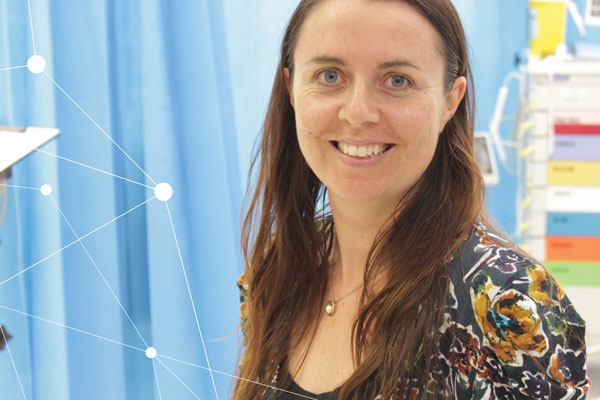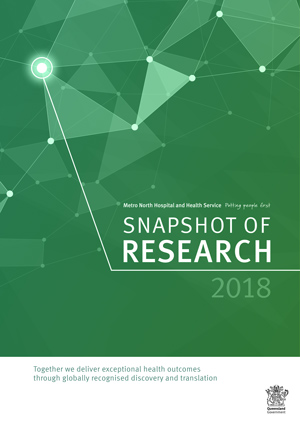Harnessing research opportunities in busy emergency department
More than 60,000 patients present to the Redcliffe Hospital Emergency Department each year. The volume and variety of cases presenting to the hospital each year provide a rich source of research opportunities for clinicians.
To make the most of research opportunities for patient improvement, the Emergency Department at Redcliffe Hospital has a new goal – for all clinicians to be actively involved in research at some level by 2021.
It’s an ambitious goal, but an achievable one, according to Dr Catherine Forristal, who joined the Emergency Department team last year as its first Research Manager, a position funded by the Emergency Medicine Foundation and Redcliffe Hospital Private Practice Trust Fund.
“Our goal is to have all staff members in the department involved in research at some level; from small quality improvement studies to large clinical trials,” Dr Forristal said.
“It’s about building a culture of research in the department, where emergency clinicians focus on the patient in front of them; while improving patient care for
the many who will follow.
“Our primary aim is to improve patient care and clinical outcomes in the Emergency Department, and the projects our clinicians work on are focused on improving the emergency care that patients receive.
“We’re talking about research that translates to improving the diagnosis, treatment and care pathways for emergency department patients.”
That culture of research got a boost last year when, for the first time, medical interns in the Emergency Department were required to complete a research audit
aimed at improving patient care.
“That initiative alone delivered 27 research audits. Two exemplary projects investigating pre-school wheeze and febrile neutropenia have resulted in significant change to clinical practice,” Dr Forristal said.
“It also created a buzz around research in the department; now we are seeing more and more clinicians coming up with their own research initiatives based
around the care we provide patients in our department.”
That surge in support for research in the Emergency Department has already been instrumental in supporting four publications, grant applications and preparations for two clinical trials.
“We’re committed to sustaining that buzz over the longer term and over the next couple of years, that research activity will become part of what everyone here does,” Dr Forristal said.


